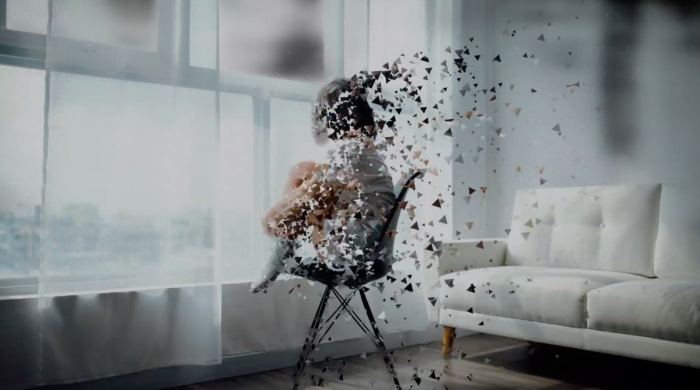
In a recent episode of the “Generation Indoctrination” podcast, host Brandon Showalter turned the spotlight on voices that are often overlooked in the cultural debate over gender ideology: the siblings of those who identify as transgender.
“Just as he was about to enter high school, Brian watched his brother become consumed with the gender mania,” Showalter explained, introducing one of four siblings who shared their stories.
The testimonies came from the United States and abroad, including one guest from Australia, where, Showalter noted, “the cultural reckoning that has happened in England and the United States has not yet unfolded … and it has been a tremendously lonely road for suffering Australian families.”
Listen to the Generation Indoctrination podcast
Brian recalled the moment his older brother gathered the family and announced, “I’m a woman.”
“It shocked my entire family, everybody. It was very shocking. You never really expect to hear something like that, especially my parents,” Brian said. “You raise a child for 19 years, and you never expect to have any hints of anything like this, and then just to have that there is just very crazy.”
Initially, Brian said he responded as many young people are taught to: with acceptance.
“You’re told at school to be very accepting about these kinds of things. I was like that. I was very accepting. I wanted to just support my brother,” he said. “But as I’ve grown older and matured a bit more and understand the gravity of the situation … I definitely started to disagree and have doubts about it.”
As his brother pursued trans medicalization, Brian said he was struck by the permanence of the changes.
“It’s a crime to remove perfectly working natural parts of your body for something in your mind that’s just feelings,” he said. “It creates these decisions you can never go back on, and you’re stuck with these permanent scars for the rest of your life.”
The fallout extended beyond his brother. “The whole family has changed so much,” Brian said. “I remember the house; it didn’t feel like a safe place at all. It was very much like a war zone. There was this constant fighting and arguing going on.”
Brian described how the focus on his brother left him feeling overlooked. “I definitely felt during that time I kind of slipped away in the shadows of the family,” he said. “It was such a difficult time as well, because just starting in high school … I wasn’t really able to rely on my parents. They weren’t really there for me, because they were just really focused on this thing happening in the family.”
The grief also weighed differently on his parents. “My mom was always just so emotional about it. My dad, I feel like he kind of stepped back. He kind of separated himself on it,” he said. Over time, both parents were “equally grieved about this. They just show it in their different ways.”
Another sibling, Ashley from the southeastern United States, shared how her brother’s announcement initially left her torn. Though she tried to be supportive, she ultimately could not reconcile what she saw as worsening his mental state.
“It would be a lot easier to just say he died. But I can’t say that,” she said. “It’s been like watching someone slowly die in front of you.”
Ashley said she was relieved when political leaders began taking stronger action. “Sometimes it still doesn’t hit me, because … six years ago now, I didn’t think that it would become this big, this quickly,” she said. Still, she grieves over what has already been lost. “I wish it weren’t too late for my brother … but he’s an adult.”
David and his younger sister, Mallory, from the Northeast, described how their sister’s transition upended their once-stable family.
“I think one of the hardest parts is I just want to have, like a perfect, ideal family set up like I envisioned growing up, instead of having this blow up,” David said. “It just really stings, because I know it’ll never be the same after that.”
Mallory recalled the devastating moment her mother told her that her sister had started taking testosterone. “I still recall that as probably one of the worst nights of my life,” she said. “My mom just broke down in front of me. I’ve never seen her more upset ever in her life … the whole weight of it kind of hit me too.”
Growing up in what she described as a liberal town, Mallory said she was initially “programmed” to affirm her sister’s new identity. But watching her parents suffer shifted her perspective. “Seeing my dad cry, who never cries … it made me realize, yes, this is affecting my sister, but I can’t just throw away my parents’ feelings,” she said.
Though their sister remains in contact, Mallory described strained family gatherings where they avoid using either her chosen or given name to minimize conflict. “We kind of walk around eggshells,” she said.
David remembered a particularly painful Thanksgiving when his sister left abruptly. Driving her around later to talk, he admitted his frustration boiled over. “I just saw how messed up and how far gone … all I could think to do was just scream at her,” he said. Over time, he has tried to show more empathy, recognizing “how she’s kind of gotten preyed upon.”
Showalter closed the episode by noting the profound toll gender ideology has taken on entire families, not just parents. “With the possible exception of the detransitioners … the tearing apart of families is by far the most painful suffering that gender ideology has caused,” he said.
Mallory echoed Showalter’s sentiment: “Put yourself in someone else’s shoes,” she urged. “Imagine this happens to your sibling. … I think a lot of people would struggle with it. I don’t think it would be as easy as everyone thinks it is.”
















